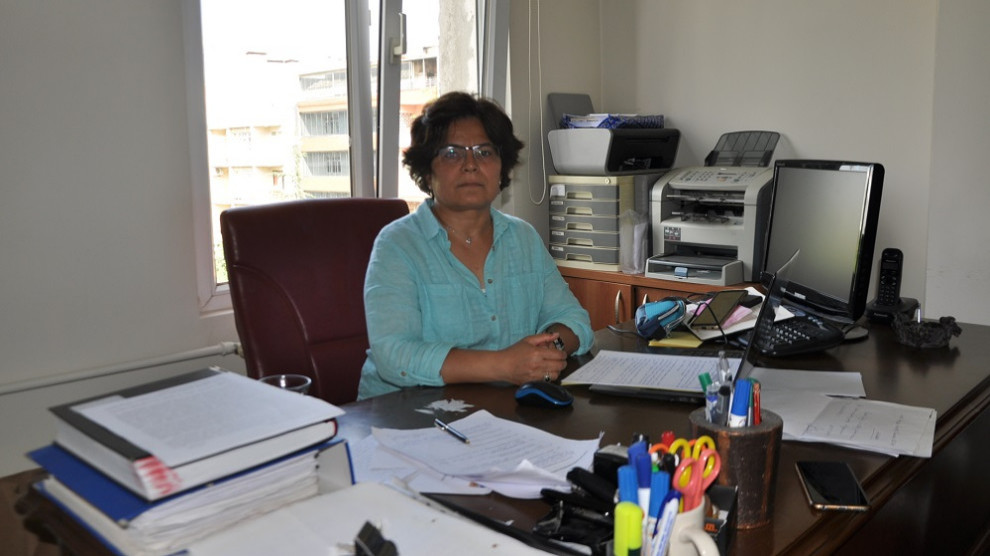IHD: Violations of rights of prisoners who were on hunger strike
After the end of the hunger strike in prisons, many rights violations related to the medical treatment of prisoners continue to be on the agenda.
After the end of the hunger strike in prisons, many rights violations related to the medical treatment of prisoners continue to be on the agenda.

Many prisoners who have been on hunger strike for a long time and are in bad condition have been taken late to hospital, while others are being sent back to prison on the ground that they refuse to be examined while handcuffed.
Human Rights Association (IHD) executive Nuray Çevirmen spoke to ANF about the rights violations going on.
Çevirmen said that thousands of people were on hunger strike in 90 prisons and added that when it came to take them to hospital things were not have they should have been. Many prisoners, she said, were handcuffed not only on the way to the hospital but also when they were being examined by doctors.
She cited the example of a “prisoner in Siverek who had been handcuffed while blood tests were taken. The prisoner fainted and because of his hands being tied behind his back he got of the hospital and back to prison with three stitches on his head.”
Noting that the prisoners who had been on hunger strike for a long time experienced internal organ pain, bowel problems, bleeding and loss of vision, Çevirmen said that they were only tested for blood.
The Turkish Medical Association (TTB) did its work but, said Çevirmen, did not show the necessary sensitivity.
Triple Protocol
Çevirmen said that in fact many facilities are not ready to deal with this kind of process and many complications in terms of the health of prisoners are caused by what she called triple protocol. “For example, - she said - the prisoner is taken out of prison for examination, but the gendarmerie handcuffs him/her, and when he/she goes to hospital he/she is not given the proper and required examinations. In addition, doctors do not have enough knowledge and equipment to deal with the consequences of hunger strike, so we would have hoped that the Ministry of Health would be able to work as a whole and exchange views with the TTB so that a much appropriate system of intervention would be introduced. Unfortunately, this did not happen.”
Çevirmen pointed out that the return of the hunger strikers to the prison without proper examination would cause big problems in the future. She cited the case of two female prisoners in Antalya, and the imposition of examination in handcuffs in Amasya Prison, and the lack of referrals in Bakırköy prison.”
The IHD is monitoring the post-hunger strike process
Çevirmen added: “The IHD has monitored the whole process since the beginning of the hunger strikes process and have related the situation in various reports. After the end of the hunger strike, we are working on the identification of violations of rights. In relation to access to health, we are working in coordination with the TTB. We have created a crisis table with lawyers, health professionals, human rights defenders.”